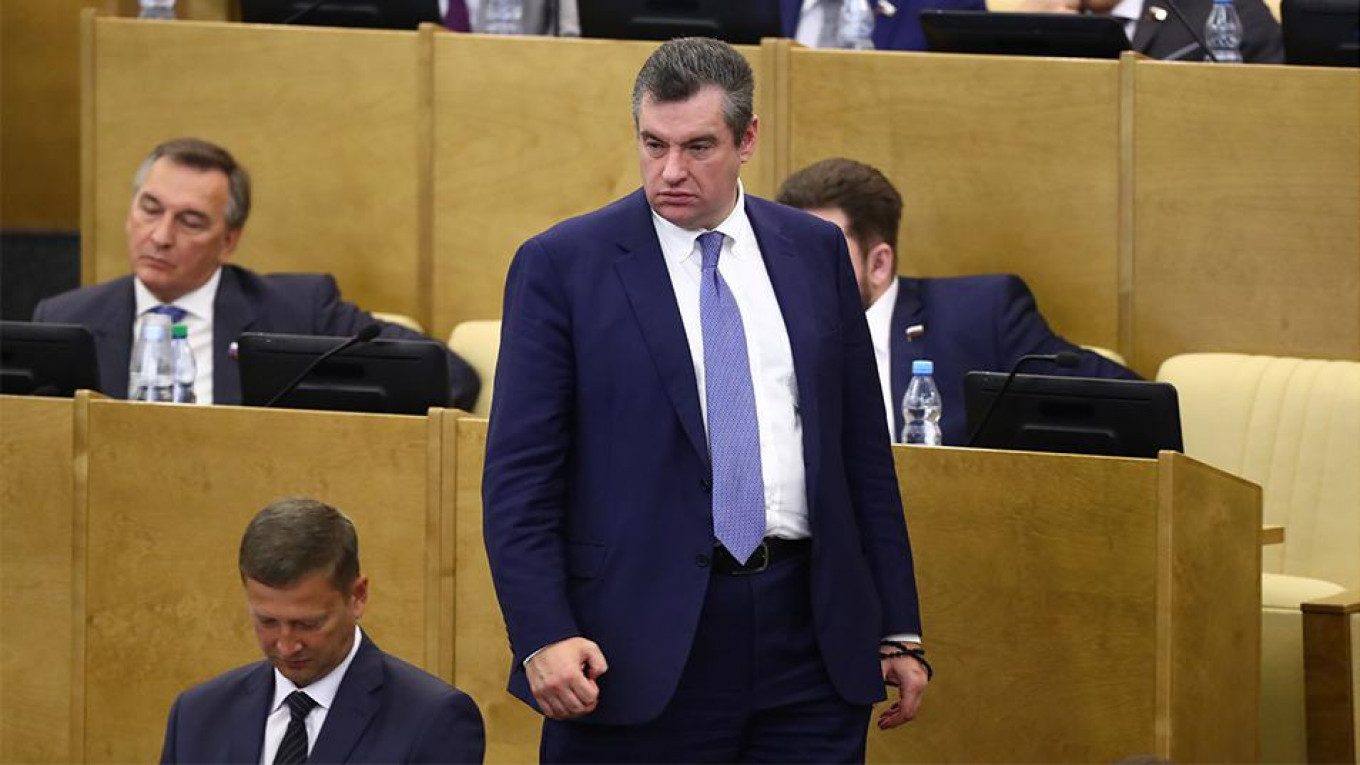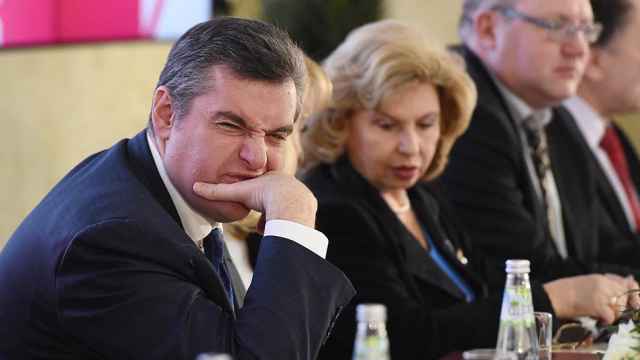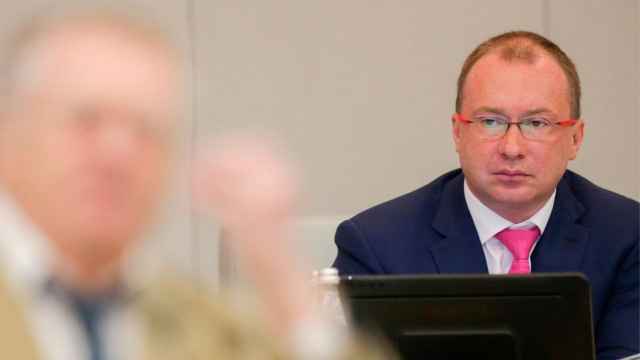A fourth journalist in Russia has stepped forward to accuse State Duma deputy Leonid Slutsky of sexual harassment in a rare public outing reminiscent of the global #MeToo movement.
Slutsky threatened to sue an independent Russian outlet after it cited at least three anonymous female correspondents who accused him of sexual harassment in the Duma.
Yekaterina Kotrikadze, the deputy editor-in-chief of the international Russian-language channel RTVI, became the first journalist to openly accuse Slutsky in a live broadcast on Tuesday.
Kotrikadze said that the lawmaker had locked her inside his office before attempting to touch and kiss her prior to an interview in 2011.
“I broke loose and ran away,” she said, adding that she kept silent after the incident for fear of repercussions.
Kotrikadze alleged that sexual harassment toward female journalists is widespread across various government institutions in Russia, but noted that victims “never speak of it out loud.”
“We understand there’s no point in this, you only risk incurring insults and accusations of lying,” the deputy editor said.
RTVI editor-in-chief and general producer Alexei Pivovarov expressed support for Kotrikadze and called on Slutsky’s other accusers to come forward publicly.
Following the accusations, Slutsky’s Duma colleague Oksana Pushkina pledged on Tuesday to introduce a bill criminalizing sexual harassment that has been stuck in committee since 2003.
Another Duma deputy said that he backed administrative punishment for harassment “if it worries Russian women.”
“[But] criminal liability is probably too steep a punishment,” Deputy Mikhail Yemelyanov told the state-run RIA Novosti news agency on Tuesday.
Tamara Pletnyova, the head of the Duma Family, Women and Children Committee, disputed the need for sexual harassment legislation.
“We’re not in America or Europe. Why do we have to copy everything? A woman, if she doesn’t want to, won’t be harassed,” she told the Gazeta.ru news website on Tuesday.
A Message from The Moscow Times:
Dear readers,
We are facing unprecedented challenges. Russia's Prosecutor General's Office has designated The Moscow Times as an "undesirable" organization, criminalizing our work and putting our staff at risk of prosecution. This follows our earlier unjust labeling as a "foreign agent."
These actions are direct attempts to silence independent journalism in Russia. The authorities claim our work "discredits the decisions of the Russian leadership." We see things differently: we strive to provide accurate, unbiased reporting on Russia.
We, the journalists of The Moscow Times, refuse to be silenced. But to continue our work, we need your help.
Your support, no matter how small, makes a world of difference. If you can, please support us monthly starting from just $2. It's quick to set up, and every contribution makes a significant impact.
By supporting The Moscow Times, you're defending open, independent journalism in the face of repression. Thank you for standing with us.
Remind me later.






